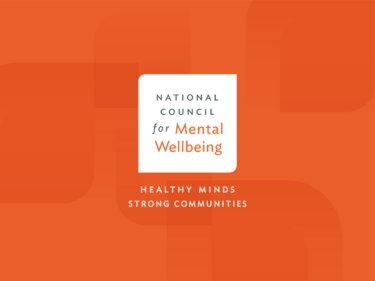The workforce shortage represents a major hurdle in efforts to provide treatment and care for those with a substance use or mental health challenge.
Federal data clearly illustrates the need for more workers. The Health Resources and Services Administration (HRSA) estimates the shortage of mental health professionals was nearly 8,000 in 2022, up from 2,593 in 2013. That has left more than 158 million people without access to care, up from 94.8 million a decade ago, according to HRSA.
The American Psychiatric Nurses Association (APNA) released a report this month outlining a shortage of psychiatric-mental health registered nurses, with nearly half planning to retire within the next 10 years.
Available data also points to a striking absence of diversity within the field of substance use and mental health treatment and care. Only 4% of psychologists are Black, while 86% are White, according to an American Psychological Association report.
So, what’s at the root of the problem?
Motivo Health suggested in a new research paper that more than half of mental health therapists eligible to get their license to practice fail to do so. Only 43% of master’s level graduates make it to licensure, with 57% facing barriers that block them from achieving their career goal somewhere in the years following graduation and their exam.
The high debt students incur obtaining a master’s degree in social work or mental health therapy — coupled with the low pay they receive when they enter the field — represents the primary reason graduates don’t take exams to receive a license to practice.
The exams themselves also raise concerns.
The Association of Social Work Boards (ASWB) released a report last summer illustrating that White test-takers were almost twice as likely as their Black peers to pass the ASWB Clinical Exam on their first attempt — a disparity that persists in the ultimate pass rate. More than 90% of White test-takers passed on either their first try or a subsequent attempt, whereas only 57% of Black test-takers ultimately passed.
In other words, more than 1,200 Black candidates — aspiring clinical social workers who had completed all the necessary education requirements to sit for these exams — were unable to achieve licensure in 2021 based solely on this exam.
While this achievement gap is most pronounced for Black test-takers, it exists in other groups, too — test-takers who identify as Asian American Pacific Islander (AAPI), Hispanic/Latino, Native American/Indigenous and multiracial candidates all have lower pass rates than their White counterparts.
Revising the tests is an important first step. After careful review, the ASWB has started that process. They have reduced the number of answer choices from four to three on 12% of questions in the tests, and plan to reduce answer choices on more questions. Although this change will likely improve the pass rate for all test-takers, it does not specifically target the racial/ethnic performance disparity.
There are other obvious steps to be taken. Those who create the test should make sure that questions are not discriminatory, and they must continue to improve diversity among those who write and review questions on the exam.
Beyond changes to the construction of licensure exams, there are additional measures for tackling these issues upstream. In response to its recent performance report, ASWB is offering free resources for social work educators, providing exam performance reports for accredited institutions and investing in equity resources.
This isn’t about making licensing exams simpler. It’s about acknowledging and identifying the problems with the exams that have long persisted. Some have argued that racial disparities in education and training also are to blame. Taken together, critics say, BIPOC graduates are at a major disadvantage.
Correcting these problems is not only necessary — it’s now vital.
We can do more to prepare graduates to take their exams. Organizations like Triad have partnerships with universities that have programs in place to support exam readiness through enrichment, remediation and other prep resources.
Improving licensing exams and the exam process should help us increase the number of social workers and therapists at a time when a workforce shortage has made it increasingly difficult for people to find treatment. Making the right revisions to exams can also help increase the number of clinicians who are Black, Hispanic/Latino, AAPI, Native American/Indigenous or multiracial.
There are many other things we must do to overcome a crippling workforce shortage, but many of those measures — like inspiring more high school-age students to pursue a career in mental health — could take a decade or more to produce new therapists.
The most immediate opportunity is to focus on aspiring social workers and other mental health professionals who have already completed their educational requirements by helping them pass their licensure exams. With dedicated attention and resources, we can make real changes that will positively impact mental health professionals and the communities they will ultimately serve.




